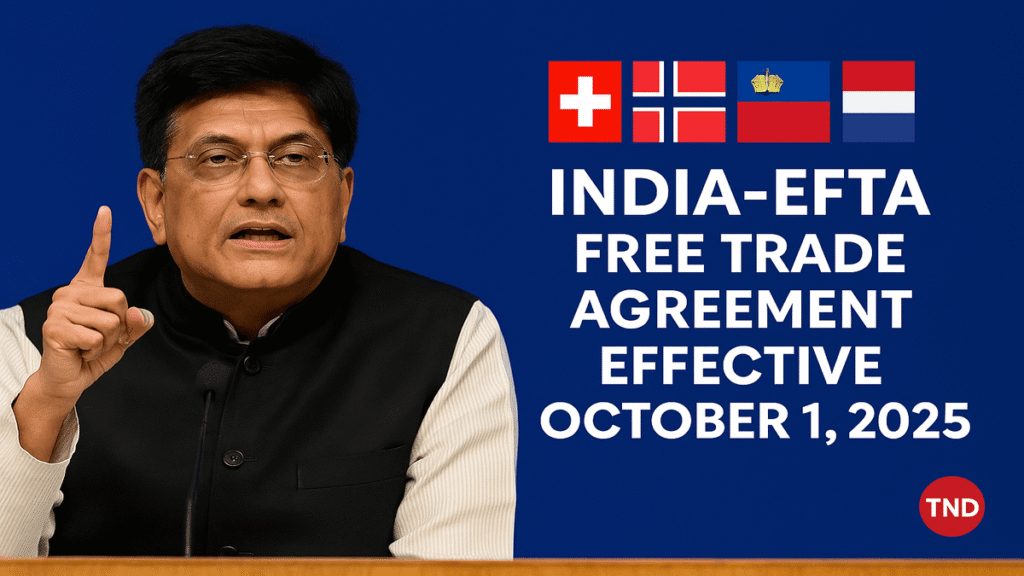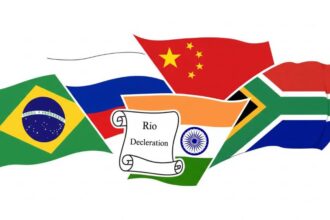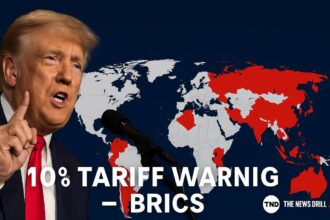
New Delhi, July 20 – Union Commerce and Industry Minister Piyush Goyal on Saturday announced that the India-EFTA Free Trade Agreement (FTA) will officially come into force from October 1, 2025. This landmark trade pact between India and the European Free Trade Association (EFTA) comprising Switzerland, Norway, Iceland, and Liechtenstein is set to reshape trade dynamics and economic collaboration between India and the four-nation European bloc.
This is India’s first comprehensive trade deal with a European bloc, aiming to boost investments, reduce tariffs, and create significant job opportunities across sectors.
What Is the India-EFTA Free Trade Agreement?
The India-EFTA Free Trade Agreement is a comprehensive economic partnership aimed at enhancing bilateral trade, eliminating tariffs, boosting investments, and fostering economic cooperation between India and EFTA nations. The agreement covers multiple dimensions including trade in goods and services, intellectual property rights, digital trade, investment promotion, and sustainable development.
After nearly 16 years of negotiations, the pact was finalized earlier in 2024 and is now ready for implementation. Goyal emphasized that this FTA is a “win-win” deal that positions India as a critical trade and investment partner in the European economic landscape.
Key Highlights of the India-EFTA Free Trade Agreement
1. Massive Investment Commitment: EFTA nations have pledged $100 billion in investments over the next 15 years under this agreement, potentially generating more than 1 million direct jobs in India.
2. Tariff Reduction & Elimination: India will gradually reduce or eliminate duties on more than 6,000 product lines, including pharmaceuticals, medical devices, watches, industrial goods, and processed foods. In return, Indian exporters in textiles, leather, agriculture, and IT services will gain greater access to EFTA markets.
3. Special Focus on MSMEs: The FTA includes specific provisions to empower Micro, Small, and Medium Enterprises (MSMEs) in India, providing them access to advanced technologies, quality inputs, and smoother export processes.
4. Sustainable Development Chapter: A first for India, the agreement incorporates a dedicated chapter on sustainability, committing both parties to upholding environmental and labor standards in line with global norms.
5. Intellectual Property Rights (IPR) & Digital Trade: The FTA facilitates smoother handling of patent protection, innovation rights, and digital transactions, making it a forward looking agreement aligned with evolving global trade norms.
Strategic Significance for India
Union Minister Piyush Goyal stressed that the India-EFTA Free Trade Agreement will enhance India’s manufacturing capacity and global competitiveness. “This agreement is not just about trade, but about creating a long term strategic partnership that encourages innovation, sustainability, and inclusive growth,” Goyal said at a press briefing.
With global supply chains shifting, EFTA countries see India as a trusted, growing economy and a production hub. This deal strengthens India’s ambition to become a $5 trillion economy by enabling better integration into European and global markets.
Opportunities for Indian Businesses
The India-EFTA Free Trade Agreement opens vast avenues for Indian pharmaceutical companies, IT service providers, textile exporters, agri producers, and engineering goods manufacturers. Switzerland, known for its pharmaceutical and finance industries, and Norway with its strengths in green technology and fisheries, offer immense bilateral synergy.
Moreover, Indian students, professionals, and startups are expected to benefit from liberalized visa and mobility norms, although detailed provisions are still being finalized.
Criticism and Caution
While the India-EFTA Free Trade Agreement has been lauded by business chambers and economists, some farmer groups and domestic industry voices have raised concerns about duty free imports affecting local producers. The government, however, maintains that the deal contains adequate safeguard mechanisms and gradual implementation timelines to protect sensitive sectors.
Conclusion
The implementation of the India-EFTA Free Trade Agreement from October 1, 2025, marks a significant turning point in India’s international trade strategy. By aligning with advanced European economies, India aims to diversify its exports, attract high value investments, and drive inclusive economic growth.
As global trade reorients post-pandemic and amid geopolitical tensions, India is positioning itself as a reliable, resilient, and responsible trade partner. The India-EFTA FTA is a step forward in making India a cornerstone in the new world economic order.















